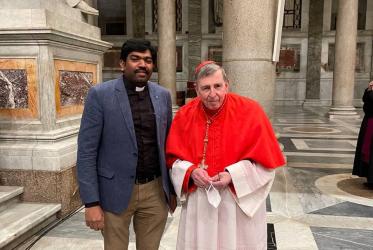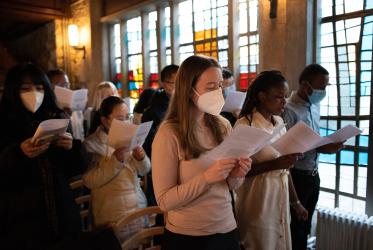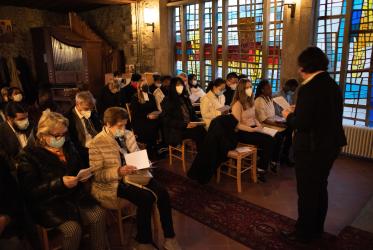Displaying 81 - 100 of 160
Called to Transformation - Ecumenical Diakonia
09 June 2022
Rev. Dr Angelique Walker-Smith receives Figel Ecumenism Award
25 February 2022
WCC leaders recall life-changing experiences from early days
10 February 2022
Bossey student Carolina Zamorano reflects on study visit to Rome
02 February 2022


















